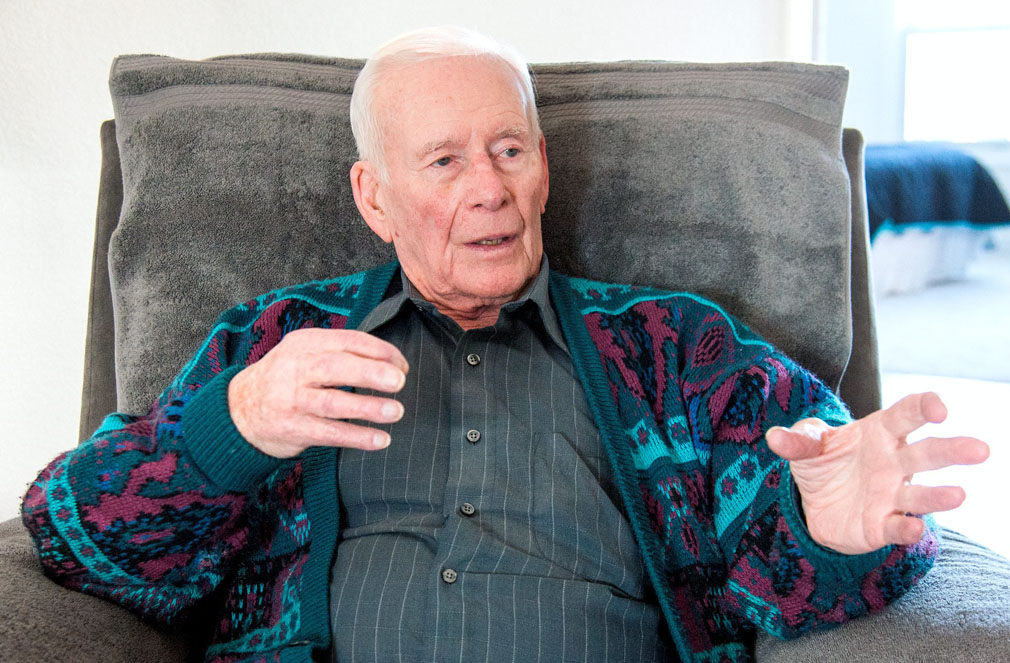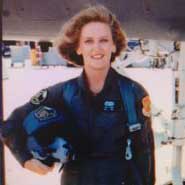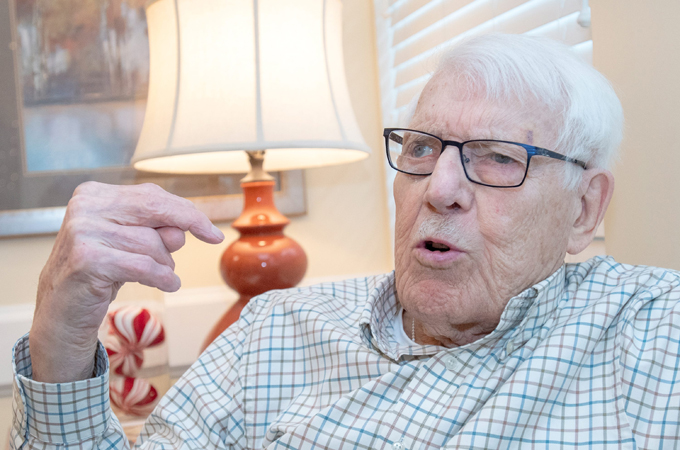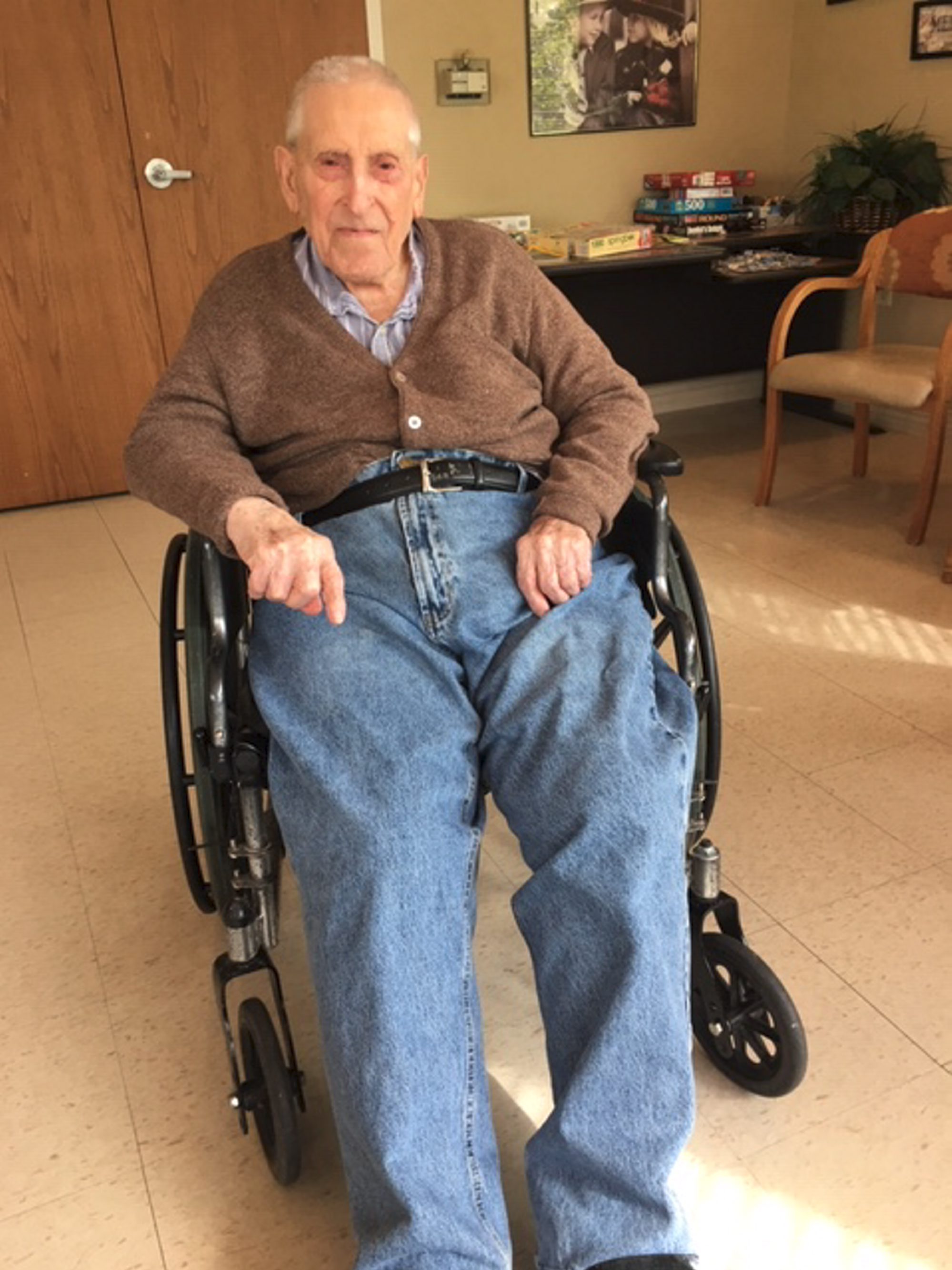Ray Heckler
By Paul Wood

Photo By Robin Scholz/The News-Gazette
URBANA — With a shell-shocked soldier for a companion, Ray Heckler drove a Jeep near the Rhine River as shells landed all around the road.
“The youngster went to pot every time the artillery went off, and it was my job to get him out, on a train,” says Heckler, 93, who spent most of his adult life in the service, and faced death in World War II.
Shells landed in fields on both sides of the road his Jeep was driving on.
“The Germans zeroed in on us pretty good,” the Urbana man says.
He was in a rail unit in North Africa and France, leaving as a staff sergeant. He then served in Japan during the Korean War in the Sullivan National Guard. Later, he worked at the Urbana Armory.
Heckler grew up in Sullivan and was working for Coca-Cola in Peoria when he was drafted in November 1942.
Like most soldiers who landed in North Africa, his port was Oran, and then his rail unit was sent to Algiers as German Field Marshal Erwin Rommel “raced across Tunisia,” Heckler recalls.
His Army rail unit transported soldiers. But he could also be counted on to carry a rifle or go through waybills. His unit also came under fire.
He describes May 1943 in Algiers as “kinda miserable,” living in a bombed-out building. Its mess hall was open to the air and the mosquitoes ate their fill of the soldiers.
Heckler’s accommodations sound less than luxurious — his bed was made from two-by-fours and clothesline.
Many in his unit participated in the invasion of Sicily, but Heckler stayed behind.
After the invasion of Southern France, Heckler eventually was transferred to the north of that country, where American and British troops were chasing the Germans out of France. He said he saw commanding Gen. Dwight D. Eisenhower more than once.
His unit then moved supplies from the Atlantic through France to the border with the Germany. On the Rhine River, the enemies traded artillery barrages on a regular basis.
He figured out the German schedule, but never the why of it.
“Every Thursday, you could figure the Germans would lambaste us with artillery fire,” Heckler says. “They’d fire artillery at us at night, and we fired right back at them.”
That brought about his most dangerous mission, when an officer said, “Ray, you get that kid in a Jeep and take him back to the train.”
Both survived the barrage of shells, as did the train they were heading for. Heckler never did find out what happened to the young man, who today would be diagnosed with post-traumatic stress disorder rather than “shell-shock.”
Allied troops continued to advance into Germany, with the Germans doing everything they could to slow down the advance.
“They blew up every bridge, the railroad bridges, too,” he recalls.
Though the war in Europe ended May 8, it was December before Heckler came home to Sullivan, staying with his folks and looking for a job.
He married and has three children, and worked for the Illinois National Guard as a civilian after his military service.
Do you know a veteran who could share a story about military service? Contact staff writer Paul Wood at pwood@news-gazette.com.
Read more stories from local veterans:
 Terri Ann Daniels
URBANA — A lesson from serving on a live weapons crew: “If you see the weapons troops running, just run,” said Senior Ai …
Terri Ann Daniels
URBANA — A lesson from serving on a live weapons crew: “If you see the weapons troops running, just run,” said Senior Ai …
 Bill Avery
Bill Avery, who enlisted in the Army Air Forces in World War II, completed flight training only to be rejected as a pilo …
Bill Avery
Bill Avery, who enlisted in the Army Air Forces in World War II, completed flight training only to be rejected as a pilo …
 James Paul Lafary
PAXTON — James Paul Lafary stayed on the ground, but saved many bomb crews from crashing after they came under attack. T …
James Paul Lafary
PAXTON — James Paul Lafary stayed on the ground, but saved many bomb crews from crashing after they came under attack. T …